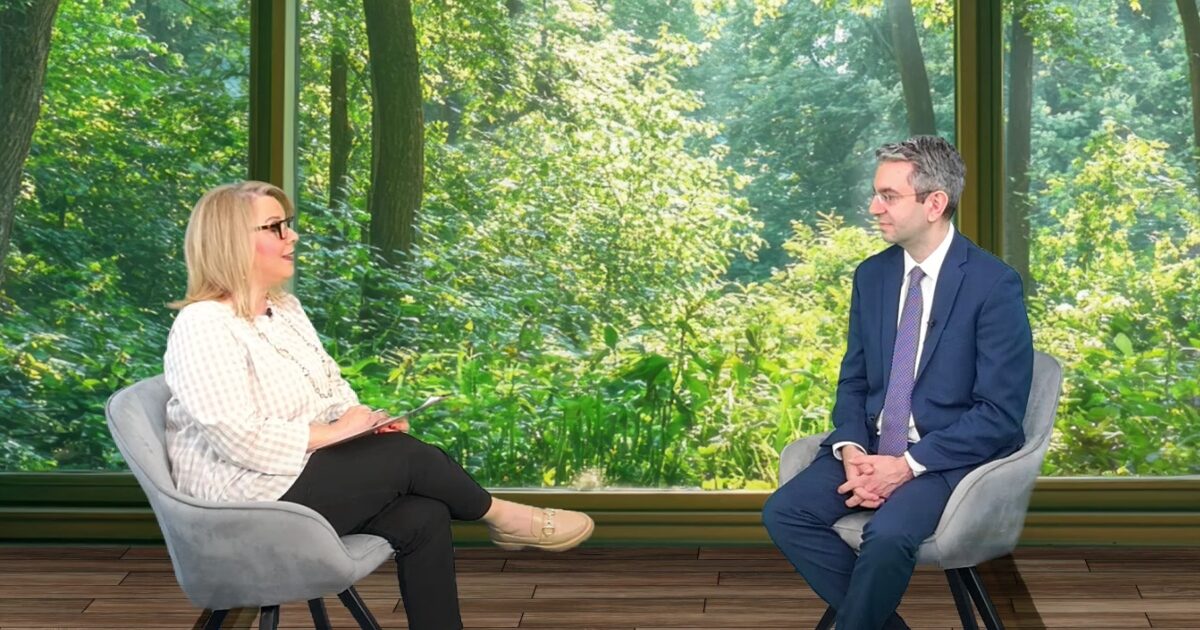A leading Greek cardiac surgeonwith brilliant studies and a career in the US, he left behind the organized and technologically advanced medicine of America and returned to his hometown, which is not lagging behind in science, as he says, but certainly, in organization and funding.
The reason for cardiac surgeon Gregory Patakos, director of the Second Cardiac Surgery Clinic, specializing in transdermal valves and an associate professor at the University of Nicosia.
In an interview with Newsit.gr and Yianna Soulakisthe well -known cardiac surgeon unfolds his journey, his long -term studies and challenges throughout his academic and career path, while responding to “why” his return to Greece:
“I was born in Greece, but I grew up in America for some years, when my father – also a cardiac surgeon – did a specialty there. I fell in love with my homeland as a child in the Gymnasium when we came to my hometown family in our homeland in Mytilene. And I had promised myself that I would study in America, but when this whole route was over, I knew it would last for many years, I would return home, “he says.
See Gregory Patakos here at iatropedia.gr: “We do valve interventions to make patients enjoy their lives again”
“I fell in love with my homeland and returned, but … I had to take exams from the beginning”
What unites almost all Greeks abroad, as he says, is nostalgia and the need to offer their place. But he does not hide his bitterness for the obstacles he faced:
“I came to Greece and had to take exams from the beginning for everything. Nothing was substantially recognized, years of specialty were recognized, medical studies were recognized, but I had to take exams, “he says.
And all this, after almost two decades of study and practice in America. He began with undergraduate studies of biology, medical and general surgery and finally acquired the specialty of cardiac surgery.
At the same time, he worked in Washington hospitals under extreme pressure, as he describes.
“The US was a big ‘school’. I was trained in wound surgery. We were coming to the hospital in Washington’s ghetto, wounded by gangster people who had shot them with multiple bullets and had multiple injuries. I think all of this is what actually educate you and become the doctor you are, “the doctor says.
Nevertheless, the return choice was not accidental. He was deeply personal and emotionally charged as she says:
“I got married Greek, we had three children, the whole family was in Greece, so that – as every Greek pulls him – and brought me to Greece. But to come here and leave such a system like America, it definitely wants courage, “he will say.
See the entire interview of Gregory Patakos at newsit.gr:
A Government’s Decision: US Diploma Identification
Gregory Patakos’ personal testimony is even more important, now that the Greek government and Prime Minister Kyriakos Mitsotakis himself have announced a legislative initiative to automatically identify doctors specializing in the US.
This decision comes to respond to a chronic demand of the scientific community, and to heal – finally – one of the most unfair arrangements of Greek bureaucracy, which works completely deterrent to returning to Greece to about 281 Greek doctors living and working in the US today.
As Mr Patakos says: “I have a friend who returned from America and took him two years until his diplomas are recognized and be able to work,” he points out
Through the legislation, the government is now seeking to facilitate the repatriation of the “big minds” and to overthrow the tendency to flee in recent decades.
Brain Gain is now more likely to overturn the Brain Drain in recent years, as long as it is also applied to medical degrees from other foreign countries.
“Greece has excellent doctors and provides equal US care, but medicine needs financial support.”
Mr Patakos, although working in the private sector, does not hesitate to recognize the high level of the NHS:
“I think we have a very high level of medicine in Greece, not just in the private sector. And colleagues in the public do a great job. The average Greek citizen has at least equal care with an American, “he says.
However, with realism and honesty he points out that many more need to be done:
“Organization and funding of the system need improvement. This will be the next big step, ”he concludes.
